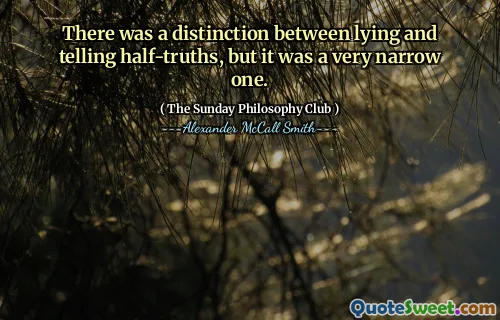She was coming to look on men and women as fellow survivors; well-dissemblers of their woes, who, with few signals of grief, had contained, assimilated, or just put to use their own destruction. Of those who had endured the worst, not all behaved nobly or consistently. But all, involuntarily, became part of a deeper assertion to life. Though the dissolution of love created no heroes, the process itself required some heroism. There was the risk that endurance might appear enough of an achievement. That risk had come up before.
In "The Transit of Venus," Shirley Hazzard explores the complex ways in which individuals cope with their struggles and losses. The protagonist begins to perceive others not merely as separate beings but as fellow survivors who skillfully mask their pain. Each person's journey of overcoming suffering is marked by a silent resilience, highlighting the human capacity to endure and adapt despite profound sorrow.
Hazzard suggests that while enduring hardship does not necessarily lead to noble actions, it does forge a shared connection among those who have suffered. The process of confronting and surviving personal turmoil requires a form of heroism, reminding us that simply prevailing in the face of adversity can be a significant accomplishment. This reflection invites readers to recognize the depth of human experience and the valor inherent in survival.





